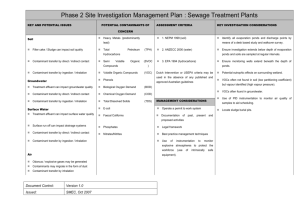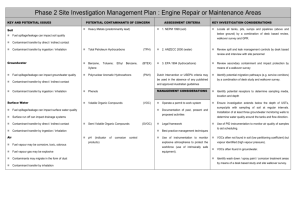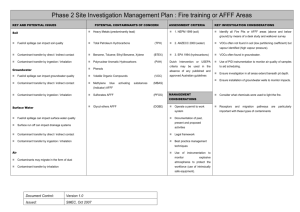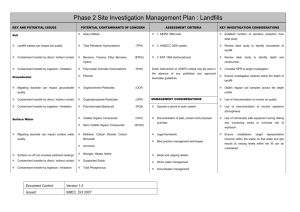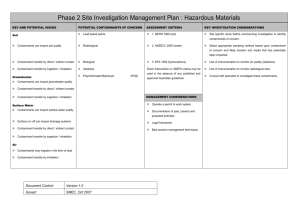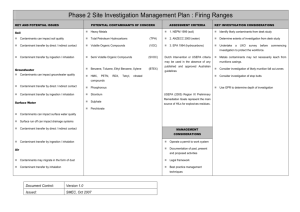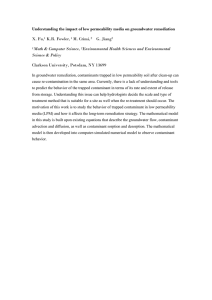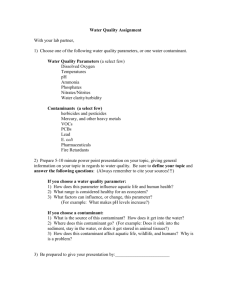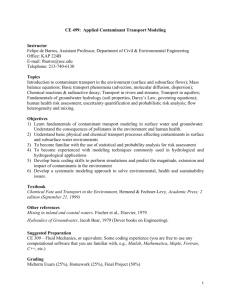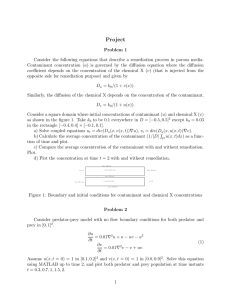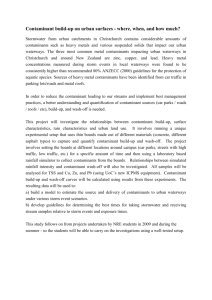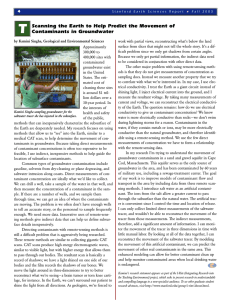Chemical Store Stage 2 Investigation Management Plan
advertisement
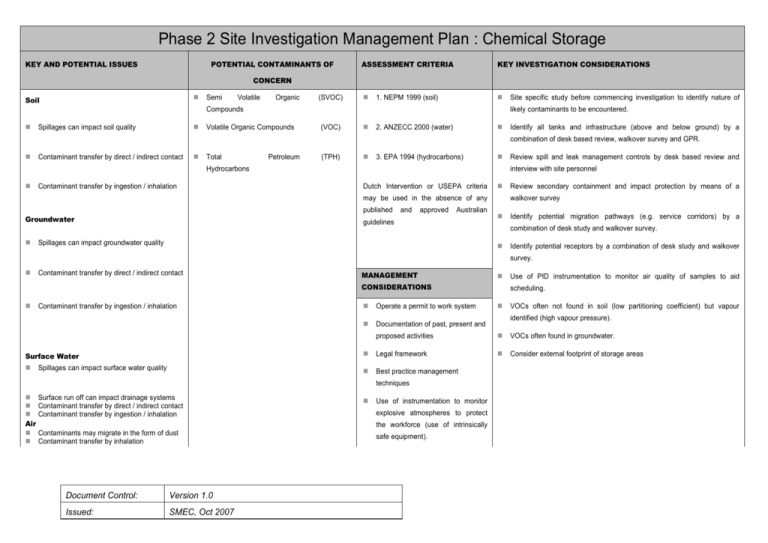
Phase 2 Site Investigation Management Plan : Chemical Storage KEY AND POTENTIAL ISSUES POTENTIAL CONTAMINANTS OF ASSESSMENT CRITERIA KEY INVESTIGATION CONSIDERATIONS CONCERN Soil Semi Volatile Organic (SVOC) 1. NEPM 1999 (soil) Compounds Spillages can impact soil quality Site specific study before commencing investigation to identify nature of likely contaminants to be encountered. Volatile Organic Compounds (VOC) 2. ANZECC 2000 (water) Identify all tanks and infrastructure (above and below ground) by a combination of desk based review, walkover survey and GPR. Contaminant transfer by direct / indirect contact Total Petroleum (TPH) 3. EPA 1994 (hydrocarbons) Hydrocarbons Contaminant transfer by ingestion / inhalation interview with site personnel Dutch Intervention or USEPA criteria may be used in the absence of any published Groundwater Review spill and leak management controls by desk based review and and approved Australian guidelines Spillages can impact groundwater quality Review secondary containment and impact protection by means of a walkover survey Identify potential migration pathways (e.g. service corridors) by a combination of desk study and walkover survey. Identify potential receptors by a combination of desk study and walkover survey. Contaminant transfer by direct / indirect contact MANAGEMENT CONSIDERATIONS Contaminant transfer by ingestion / inhalation Operate a permit to work system Documentation of past, present and Consider external footprint of storage areas Best practice management techniques Version 1.0 Issued: SMEC, Oct 2007 identified (high vapour pressure). Document Control: VOCs often not found in soil (low partitioning coefficient) but vapour VOCs often found in groundwater. Legal framework Surface run off can impact drainage systems Contaminant transfer by direct / indirect contact Contaminant transfer by ingestion / inhalation Air Contaminants may migrate in the form of dust Contaminant transfer by inhalation scheduling. proposed activities Surface Water Spillages can impact surface water quality Use of PID instrumentation to monitor air quality of samples to aid Use of instrumentation to monitor explosive atmospheres to protect the workforce (use of intrinsically safe equipment).
